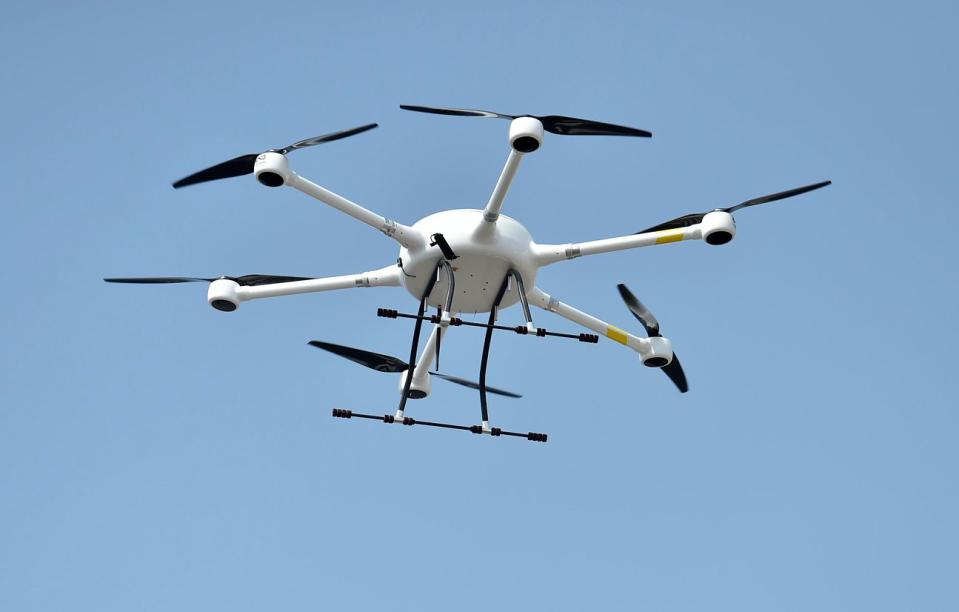Despite Gatwick chaos, drones could add £42bn to UK economy
Two drones spotted at Gatwick Airport have caused chaos for thousands and passengers just before Christmas, with flights cancelled and a huge economic cost.
Previous disruption by drones has sparked calls for a clampdown on their use, but their potential economic benefit could be huge – if used in the right way.
A report by accountancy firm PriceWaterhouseCoopers (PwC) earlier this year predicts there will be more than 76,000 drones in use across UK skies in just over a decade’s time.
It forecasts that drones will not only give the country a £42bn ($53.1bn) boost by 2030, but also provide hundreds of thousands of new jobs – and improve overall UK productivity.
The industries that could benefit most from drones

Many UK industries could see major cost savings, according to the Skies Without Limits report. The technology, media and telecoms sector is expected to reap the biggest reward of £4.8bn, while sectors including financial services, transport and logistics, and government services are set to see similar results.
According to PwC, these savings could help the UK address its long-standing productivity deficit. Output per hours in the UK is 20% lower than France and 26% lower than the US. But cost reductions and efficiency improvements from drone usage is expected to feed into an increase of 3.2% in “multi-factor” productivity.
READ MORE: Cost of Gatwick drone chaos could easily run into millions
Earlier this year, Yael Selfin, chief economist at audit, tax and advisory firm KMPG UK, said improving UK productivity was necessary to boost the country’s economy.
“The UK’s economic challenges go beyond Brexit, and more focus should be turned towards improving productivity and social inclusion as finding solutions for these two problems will go a long way to improving the UK’s long-term prospects,” he added.
According to PwC’s analysis, this productivity boost should contribute to major uplifts in the market value of UK goods and services across many industries, including construction and manufacturing (£8.6bn); wholesale, retail trade and food services (£7.7bn); and the public sector, which includes defence, health and education (£11.4bn).
Will the benefits outweigh the risks?
Over time, the gains generated by drones in cost savings, productivity and consumer demand is expected to create significant new employment opportunities, with up to 628,000 jobs in the drones economy being created for UK workers.
But as PwC’s UK drones leader Elaine Whyte warned when the report was released in May – long before the Gatwick incident – there is a long way to go in showing drones’ benefits outweigh the dangers.
READ MORE: Flights suspended at London Gatwick airport after drones stopped
“In order to realise the full potential from drones, the immediate focus must be on developing society’s confidence in the technology to help drive acceptance and increase adoption,” she said.
“While drones are often currently viewed as more of a toy, by combining this emerging technology with the right business understanding and human insight there is a huge opportunity to help solve some of business and society’s most important problems.”

 Yahoo Finance
Yahoo Finance 